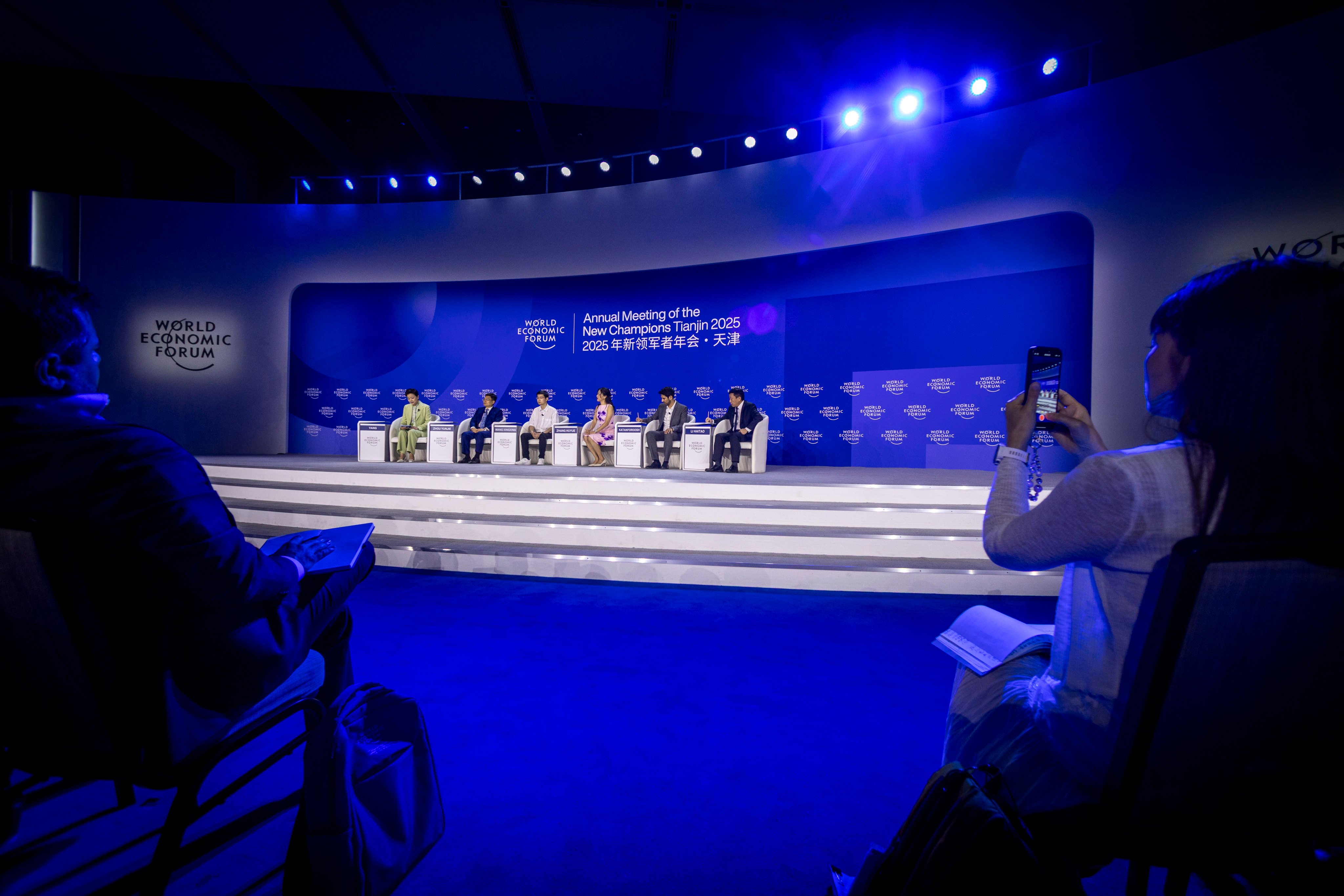As the head of China's humanoid robotics start-up Unitree disclosed its annual revenue has passed one billion yuan (US$139.4 million), entrepreneurs and scholars said the country's strong data infrastructure, mature supply chain and vast market position it as a potential leader in the next wave of development for artificial intelligence (AI).
“The rising attention on our industry, along with increasing demand and support, has created the essential conditions for leading companies to grow rapidly,” Wang Xingxing said during a panel discussion on Thursday at the Annual Meeting of the New Champions in Tianjin, where he announced the milestone.
The Unitree founder and CEO said support from the government of Zhejiang province, where the company is based, along with its favourable business environment and rich talent pool, all contributed to his firm’s success since its founding in 2016.
Li Haitao, dean of the Cheung Kong Graduate School of Business, said at the same panel China has “tremendous potential” in AI.
“Only two countries can lead the AI revolution in the next decade so far,” Li said during the World Economic Forum event, also known as “Summer Davos”.
“One is America. One is China.”
In addition to China’s sizeable and educated workforce, Li gave credit to the rapid advances it has made in its digital economy and telecommunications infrastructure over the past 20 years.
The country’s strong data grid, including 5G networks and cloud computing, forms a critical foundation for AI development, he said.
Beijing’s leadership in alternative energy also positions it favourably in the current technological transformation, Li said, as the advancement of AI demands substantial energy resources.
“[China’s fast AI development] is not happening in a vacuum,” Li said. “It has been accumulating for decades.”
Both AI and robotics are drawing growing global attention for their potential to boost productivity. Beijing expects these technologies to become reliable drivers of economic growth, especially as start-ups like DeepSeek and Unitree gain international recognition.
The panel’s remarks are being echoed across the Pacific. At chip giant Nvidia’s annual shareholder meeting on Wednesday, CEO Jensen Huang said AI and robotics would provide the company the most space for growth.
“We have many growth opportunities across our company, with AI and robotics the two largest, representing a multi-trillion-dollar growth opportunity.”
The AI wave has also swept through the manufacturing sector. Unitree CEO Wang said the company is now collaborating with major appliance manufacturers to advance the commercialisation of its robots, though large-scale adoption will still take time.
Zhou Yunjie, president of home appliance manufacturing giant Haier, said during the panel that his company has established a division for robotics, both for industrial and household use.
China’s mature manufacturing base is one of its great advantages in AI development, said University of Southern California law professor Angela Zhang at the “Summer Davos” discussion.
“China has a strong competitive advantage when it comes to scaling, and that is from both the supply and demand side,” Zhang said.
“Industrial capacity will allow China to be able to turn out the hardware to support AI applications. On the demand side, because we have a very large consumer base and a very low cost of manufacturing, China can diffuse the product very quickly.”
This diffusion is crucial for AI development, Zhang added, as it generates real-world data which can be fed back into the software to train it.
